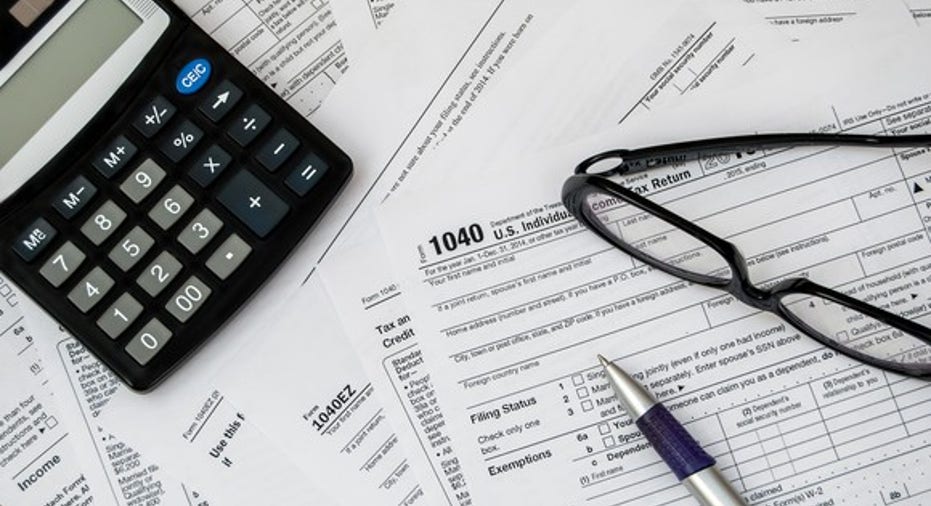The 6 Best Tax Deductions for 2017

Most U.S. taxpayers can agree on one thing: We'd all like to pay as little as possible. Thankfully, there are a number of tax deductions that can shield more of your income from the IRS. Knowing which write-offs you're eligible for can reduce your federal tax burden, so it pays to read up on the tax breaks that are available today. Here are some of the best tax deductions to look out for in 2017.
IMAGE SOURCE: GETTY IMAGES.
1. Tax deductions for homeowners
Owning a home can be a major expense, but the good news is that your property might serve as a major source of tax deductions. For one thing, the mortgage interest deduction could shave thousands of dollars off your tax bill if your loan amount is high enough. As long as your mortgage doesn't exceed $500,000 ($1 million if you file a joint return), you can write off whatever interest you pay for the year. This tax deduction can be especially beneficial in the early stages of your mortgage, when most of your payments go toward the interest portion of your loan, rather than its principal. Furthermore, as a homeowner, you can also write off your property taxes, points on your mortgage, and private mortgage insurance premiums, provided you make $54,000 or less as a single tax filer or $109,000 or less as a couple filing jointly.
2. Charitable contributions
Donating money to charity isn't just good for your soul; it's also good for your taxes. Any time you make a contribution to a registered charity, you can deduct your donation on your return. All you need to do is retain a receipt or other proof of your donation. In fact, you can take a tax deduction for charity even if you don't donate actual cash. As long as there's a record of your donation, along with some proof of the donated item's value, you can claim a deduction for unwanted goods you give away.
3. Medical expenses
Healthcare costs can be a major burden for tax filers of all ages, but if you spend enough on medical bills, you may get a tax write off. You're allowed to claim a medical expense deduction for costs that exceed 10% of your adjusted gross income (AGI). So if your AGI is $50,000 and you incur $6,000 in medical bills, then you can write off $1,000 (because 10% of your income equals $5,000, and you spent $1,000 beyond that amount).
4. Job search expenses
Looking for work can be an expensive process, but as long as you're searching for a new job within your original field, you can deduct eligible expenses such as air or train fare, parking, and lodging. You can also deduct the cost of using a resume coach or another such professional service. Keep in mind, however, that you can only deduct expenses that exceed 2% of your AGI. Furthermore, if you're a recent college graduate who's new to the job market, then you're not eligible to claim this deduction.
5. Investment losses
Nobody likes losing money on investments, but if you take a loss on a particular stock or bond, you can use that loss to offset gains for the year. And if your losses exceed your gains, you can deduct a net loss of up to $3,000 against your ordinary income. Furthermore, if your net loss for the year is greater than $3,000, you can carry the remainder forward and use it as a deduction in future tax years.
6. Tax deductions for the self-employed
If you're freelance or self-employed and use your vehicle for business purposes, then you're allowed to deduct mileage costs, provided you maintain an accurate mileage log. Furthermore, if you conduct business from your home, then you may be eligible for a home office deduction. To claim the home office deduction, you'll need to add up your expenses (like electricity, heat, and phone service) for the year and write off the amount that's proportionate to the amount of space your office takes up in your home. So if you incur $3,000 in expenses and your office takes up 200 feet in your 2000-square-foot home, then you can write off $300, because your office accounts for one-tenth of your total space. Keep in mind that to claim the deduction, your office space needs to be used exclusively for business. You can't claim a deduction for your dining room even if you do tend to sit there and work on your laptop.
No matter how many tax deductions you're planning to take in 2017, make sure you have proof that your write-offs are valid. The more accurate you are when filing your return, the greater your chances of avoiding unwanted problems with the IRS.
The $15,834 Social Security bonus most retirees completely overlook If you're like most Americans, you're a few years (or more) behind on your retirement savings. But a handful of little-known "Social Security secrets" could help ensure a boost in your retirement income. For example: one easy trick could pay you as much as $15,834 more... each year! Once you learn how to maximize your Social Security benefits, we think you could retire confidently with the peace of mind we're all after.Simply click here to discover how to learn more about these strategies.
Try any of our Foolish newsletter services free for 30 days. We Fools may not all hold the same opinions, but we all believe that considering a diverse range of insights makes us better investors. The Motley Fool has a disclosure policy.



















